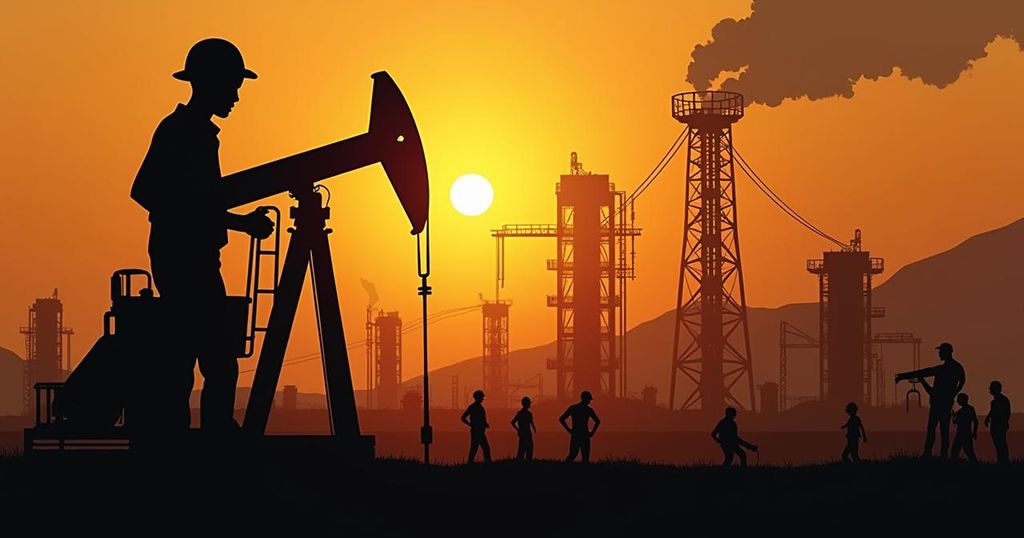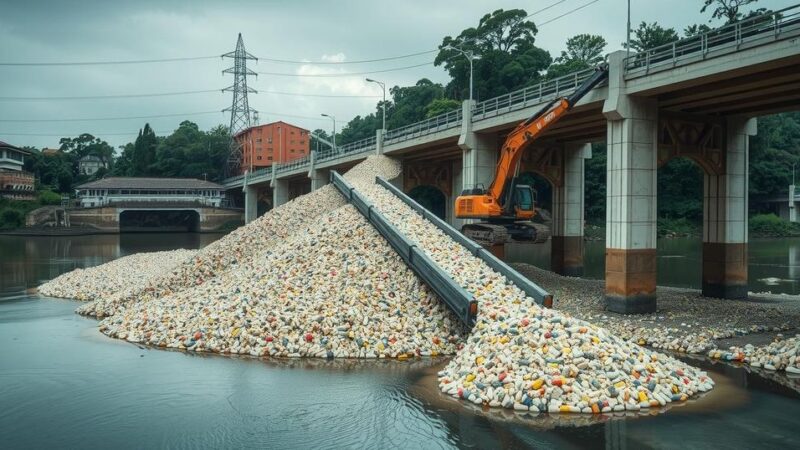The Democratic Republic of Congo aims to crack down on companies purchasing conflict minerals linked to violence in the eastern region. Foreign Minister Therese Kayikwamba Wagner announced investigations into firms like Apple Inc., stressing the importance of addressing the humanitarian crisis resulting from mineral smuggling. The DRC is also pursuing sanctions against Rwandan leaders suspected of supporting armed groups that contribute to the ongoing conflict.
The Democratic Republic of Congo (DRC) intends to intensify its efforts against companies engaging in the purchase and sourcing of minerals from its eastern region, which is critically affected by conflicts and humanitarian crises. Foreign Minister Therese Kayikwamba Wagner emphasized that the government is currently scrutinizing various corporations, including Apple Inc., regarding their acquisition of metals such as tin, tantalum, and gold, which may be associated with violence and illicit smuggling operations via Rwanda. Minister Wagner acknowledged the detrimental impact of mineral smuggling on the nation’s economy, stating that it costs DRC billions of dollars. With the presence of over 100 armed militias, including the M23 rebel group that recently seized control of the Rubaya tantalum mine, the situation remains volatile. Reports suggest that Rwanda has allegedly supported the M23, a claim the Rwandan government has refuted. Furthermore, a recent UN report deemed the minerals sourced from Rubaya as “ineligible for trade,” owing to their connection to violent conflicts. Although Apple has asserted that its supply chain practices are free from links to conflict zones in Congo, Minister Wagner continues to highlight the necessity for a comprehensive and responsible reassessment of corporate supply chains. The ongoing conflict has resulted in the displacement of over six million individuals within Congo, exacerbating the humanitarian emergency, particularly amid an mpox outbreak in the region. Peace negotiations with Rwanda are cautiously progressing, facilitated by Angola and supported by the United States, as the DRC seeks targeted sanctions against Rwandan leaders for their involvement in the hostilities, while maintaining that the sanctions should not affect the Rwandan populace. Minister Wagner further remarked, “It is about making sure that the decision makers are held accountable.” Thus, the DRC is not only seeking immediate resolutions but also aiming to implement lessons learned during the past three decades of unrest.
The Democratic Republic of Congo is rich in mineral resources, particularly tantalum, which is crucial for portable electronic devices. However, this abundance has been a double-edged sword, as it has fueled persistent conflicts in the region since the aftermath of the Rwandan genocide. The involvement of various armed groups, coupled with alleged foreign support, particularly from Rwanda, has complicated efforts to stabilize the eastern DRC. The humanitarian crisis has reached extremely serious levels, with millions displaced due to ongoing violence and conflict over resource control. The international community is increasingly focusing on the ethical implications of sourcing minerals from conflict zones, with companies pressured to adhere to strict due diligence guidelines.
In summary, the Democratic Republic of Congo is taking significant steps to hold corporations accountable for their involvement in purchasing conflict minerals from its war-affected eastern region. With ongoing investigations and potential legal actions, the DRC emphasizes the need for responsible sourcing and greater transparency within corporate supply chains. The situation remains critical, as millions of people continue to suffer from the repercussions of long-standing conflict, and the international response will be pivotal in supporting peace and stability efforts.
Original Source: www.bnnbloomberg.ca







